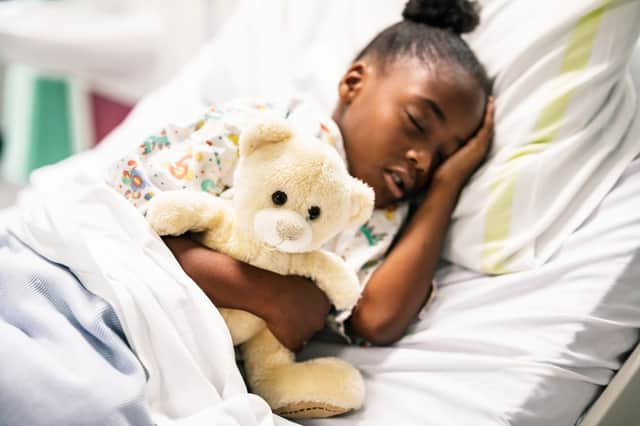These are the most common signs of Covid-19 in children - and how they differ to adult symptoms


Several schools across the UK have reported cases of Covid-19, but symptoms in children may be harder to spot.
New research suggests that the virus presents differently in children than in adults - so what signs should you look out for?
Advertisement
Hide AdAdvertisement
Hide AdDo children and adults experience different symptoms?
The NHS lists the following as the main signs of Covid-19 in adults and children:
- High temperature
- A new, continuous cough
- A loss or change in the sense of smell or taste
However, the team behind the Covid symptom study app state that new data shows that coronavirus presents differently in children compared to adults.
Professor Tim Spector of King’s College London, who led the research, said: “We need to start telling people what are the key symptoms at different ages rather than this blanket obsession with fever, cough and lack of smell.”
The team’s latest findings are based on reports of symptoms amongst 198 children who tested positive for coronavirus, out of the almost 16,000 tested.
Advertisement
Hide AdAdvertisement
Hide AdProfessor Spector said that of the children who test positive, and experience symptoms, around half of them did not have any of the three main signs as listed by the NHS.
He said: “If you followed the government’s advice, you’d be missing half of the [symptomatic] infections.”
The professor added that parents and teachers needed to be aware of the different ways that the virus presents in children.
What are the symptoms of Covid-19 in children?
Of the children tested, who had symptoms, it was found that 55 per cent of children had fatigue, 54 per cent had a headache and almost half had a fever.
Advertisement
Hide AdAdvertisement
Hide Ad38 per cent had a sore throat, 35 per cent skipped meals, 15 per cent had an unusual skin rash and 13 per cent had diarrhoea.
A third of the children who tested positive did not experience symptoms.
The research from the Covid symptom study app echoes that of researchers at Queen’s University Belfast.
Dr Tom Waterfield, first author of the study, said: “In our group, diarrhoea and vomiting were more predictive than, say, cough or even changes in smell and taste.
Advertisement
Hide AdAdvertisement
Hide Ad“If you want to actually diagnose infection in children, we need to start looking at diarrhoea and vomiting, not just upper respiratory tract symptoms.”
Professor Spector said that while some of the symptoms of the children overlapped with symptoms for that of a cold, other symptoms were unusual - like skin rashes.
Researchers behind the app have previously argued that rashes should be considered a fourth sign of Covid-19, alongside temperature, cough and change in taste or smell.
Professor Spector said: “It is certainly as important as the other features, and in children it is much more important.
Advertisement
Hide AdAdvertisement
Hide Ad“One in six children will have [a rash] and many times it will be the only sign, and you don’t get a funny rash with most coughs, colds [or] flus.”
The professor said that the difference in symptoms was likely down to the way the immune system responds to the virus.
What is the Covid symptom study app?
The Covid symptom study app was developed by health science company ZOE, and is endorsed by the Welsh Government, NHS Wales, the Scottish Government and NHS Scotland.
The app works by tracking users’ reports of symptoms and how they are feeling.
Advertisement
Hide AdAdvertisement
Hide AdThis allows researchers to better understand the symptoms of Covid-19, track how fast the virus is spreading in specific areas and identify high risk areas as well.
You can sign up to the app by downloading it for free from your mobile phone’s app store, making an account and inputting how you’re feeling - even if you’re feeling well.